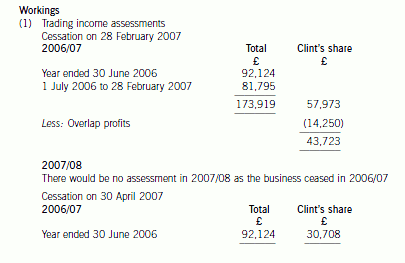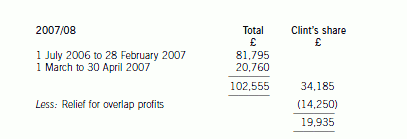听朋友说ACCA考试免试政策,那什么条件可以免...
发布时间:2021-05-11
听朋友说ACCA考试免试政策,那什么条件可以免考呢?
最佳答案
据我所知通过英语6级没有免试的,而且F4是英国法律,
ACCA免试政策
注册报名资格,免试情况
会计学 – 获得学士学位,免试5门课程(F1-F5)
会计学 – 辅修专业,免试3门课程(F1-F3)
金融专业,免试5门课程(F1-F5)
法律专业,免试1门课程(F4)
商务及管理专业,免试1门课程(F1)
MPAcc专业(获得MPAcc学位或完成MPAcc大纲规定的所有课程、只有论文待完成)
原则上免试九门课程(F1–F9),其中F6(税务)的免试条件:CICPA全科通过或MPAcc课程中选修了“中国税制”课程。
MBA学位 – 获得MBA学位,免试3门课程(F1-F3)
非相关专业,无免试
2019年以后通过6+1考试获得CICPA全科通过,免试9门(F1-F9)
下面小编为大家准备了 ACCA考试 的相关考题,供大家学习参考。
(c) The Shirtmaster division and Corporate Clothing division, though being part of the same group, operate largely
independently of one another.
Assess the costs and benefits of the two divisions continuing to operate independently of one another.
(15 marks)
(c) The Shirtmaster Group has decided to structure itself using two divisions who are dealing with very different markets,
customers and buying behaviours. In so doing the intention is to provide more value to the customer through a better
understanding of their needs. The existence of the two divisions also reflects the origins of the two family businesses.
Mintzberg in his work on organisation design and structure sees divisional configurations as being appropriate in relatively
simple and static environments where significant strategic power is delegated from the ‘strategic apex’ to the ‘middle line‘
general managers with responsibility for the performance of the division. Indeed one of the benefits cited for divisionalised
companies is their ability to provide a good training ground in strategic decision making for general managers who can then
progress to senior positions at company headquarters. Tony Masters’s reluctance to delegate real strategic decision making
power to the senior managers in the Shirtmaster division may be preventing those managers developing key managerial skills.
Using the Boston Box model one could classify the Shirtmaster division as a ‘dog’ with low market share in a market exhibiting
change but little growth. The Corporate Clothing division, by contrast, can be regarded as a ‘problem child’ having a small
share but of a growing market. Porter’s ‘better-off test’ needs to be met – are the two divisions better off being in the same
Group? As it stands there seems little synergy between the two divisions – there seems to be little evidence of the two divisions
sharing resources or transferring skills or learning between the two divisions. Their two value chains and systems are both
separate and different though on the face of it there are many activities that are similar. Operating independently may
encourage healthy competition between the two divisions and consequently better performance through better motivated staff.
Specialised competences such as Corporate Clothing division’s on-line response to customer orders and design changes are
more easily developed within a divisionalised structure. Performance can be clearly identified and controlled and resources
channelled to those areas showing potential. However, this may be at the expense of costly duplication of resources and an
inability to get the necessary scale to compete in either of their separate markets. Certainly, the lack of co-operation betweenthe divisions in areas such as information systems may lead to higher costs and poorer performance.
(b) Distinguish between strategic and operational risks, and explain why the secrecy option would be a source
of strategic risk. (10 marks)
(b) Strategic and operational risks
Strategic risks
These arise from the overall strategic positioning of the company in its environment. Some strategic positions give rise to
greater risk exposures than others. Because strategic issues typically affect the whole of an organisation and not just one or
more of its parts, strategic risks can potentially concern very high stakes – they can have very high hazards and high returns.
Because of this, they are managed at board level in an organisation and form. a key part of strategic management.
Operational risks
Operational risks refer to potential losses arising from the normal business operations. Accordingly, they affect the day-to-day
running of operations and business systems in contrast to strategic risks that arise from the organisation’s strategic positioning.
Operational risks are managed at risk management level (not necessarily board level) and can be managed and mitigated by
internal control systems.
The secrecy option would be a strategic risk for the following reasons.
It would radically change the environment that SHC is in by reducing competition. This would radically change SHC’s strategic
fit with its competitive environment. In particular, it would change its ‘five forces’ positioning which would change its risk
profile.
It would involve the largest investment programme in the company’s history with new debt substantially changing the
company’s financial structure and making it more vulnerable to short term liquidity problems and monetary pressure (interest
rates).
It would change the way that stakeholders view SHC, for better or worse. It is a ‘crisis issue’, certain to polarise opinion either
way.
It will change the economics of the industry thereby radically affecting future cost, revenue and profit forecasts.
There may be retaliatory behaviour by SHC’s close competitor on 25% of the market.
[Tutorial note: similar reasons if relevant and well argued will attract marks]
(c) Discuss the ethical responsibility of the company accountant in ensuring that manipulation of the statement
of cash flows, such as that suggested by the directors, does not occur. (5 marks)
Note: requirements (b) and (c) include 2 professional marks in total for the quality of the discussion.
(c) Companies can give the impression that they are generating more cash than they are, by manipulating cash flow. The way
in which acquisitions, loans and, as in this case, the sale of assets, is shown in the statement of cash flows, can change the
nature of operating cash flow and hence the impression given by the financial statements. The classification of cash flows
can give useful information to users and operating cash flow is a key figure. The role of ethics in the training and professional
lives of accountants is extremely important. Decision-makers expect the financial statements to be true and fair and fairly
represent the underlying transactions.
There is a fine line between deliberate misrepresentation and acceptable presentation of information. Pressures on
management can result in the misrepresentation of information. Financial statements must comply with International
Financial Reporting Standards (IFRS), the Framework and local legislation. Transparency, and full and accurate disclosure is
important if the financial statements are not to be misleading. Accountants must possess a high degree of professional
integrity and the profession’s reputation depends upon it. Ethics describe a set of moral principles taken as a reference point.
These principles are outside the technical and practical application of accounting and require judgement in their application.
Professional accountancy bodies set out ethical guidelines within which their members operate covering standards of
behaviour, and acceptable practice. These regulations are supported by a number of codes, for example, on corporate
governance which assist accountants in making ethical decisions. The accountant in Warrburt has a responsibility not to mask
the true nature of the statement of cash flow. Showing the sale of assets as an operating cash flow would be misleading if
the nature of the transaction was masked. Users of financial statements would not expect its inclusion in this heading and
could be misled. The potential misrepresentation is unacceptable. The accountant should try and persuade the directors to
follow acceptable accounting principles and comply with accounting standards. There are implications for the truth and
fairness of the financial statements and the accountant should consider his position if the directors insist on the adjustments
by pointing the inaccuracies out to the auditors.
(ii) Analyse the effect of delaying the sale of the business of the Stiletto Partnership to Razor Ltd until
30 April 2007 on Clint’s income tax and national insurance position.
You are not required to prepare detailed calculations of his income tax or national insurance liabilities.
(4 marks)
(ii) The implications of delaying the sale of the business
The implications of delaying the sale of the business until 30 April would have been as follows:
– Clint would have received an additional two months of profits amounting to £6,920 (£20,760 x 1/3).
– Clint’s trading income in 2006/07 would have been reduced by £13,015 (£43,723 – £30,708), much of which
would have been subject to income tax at 40%. His additional trading income in 2007/08 of £19,935 would all
have been taxed at 10% and 22%.
– Clint is entitled to the personal age allowance of £7,280 in both years. However, it is abated by £1 for every £2
by which his total income exceeds £20,100. Once Clint’s total income exceeds £24,590 (£20,100 + ((£7,280
– £5,035) x 2)), his personal allowance will be reduced to the standard amount of £5,035. Accordingly, the
increased personal allowance would not be available in 2006/07 regardless of the year in which the business was
sold. It is available in 2007/08 (although part of it is wasted) but would not have been if the sale of the business
had been delayed.
– Clint’s class 4 national insurance contributions in 2006/07 would have been reduced due to the fall in the level
of his trading income. However, much of the saving would be at 1% only. Clint is not liable to class 4 national
insurance contributions in 2007/08 as he is 65 at the start of the year.
– Changing the date on which the business was sold would have had no effect on Clint’s class 2 liability as he is
not required to make class 2 contributions once he is 65 years old.


声明:本文内容由互联网用户自发贡献自行上传,本网站不拥有所有权,未作人工编辑处理,也不承担相关法律责任。如果您发现有涉嫌版权的内容,欢迎发送邮件至:contact@51tk.com 进行举报,并提供相关证据,工作人员会在5个工作日内联系你,一经查实,本站将立刻删除涉嫌侵权内容。
- 2021-03-11
- 2021-04-15
- 2021-03-12
- 2021-06-05
- 2021-03-11
- 2021-01-01
- 2021-03-13
- 2021-03-12
- 2021-03-11
- 2021-01-01
- 2021-03-11
- 2021-04-25
- 2021-03-10
- 2021-12-31
- 2021-03-11
- 2021-06-29
- 2021-06-11
- 2021-03-11
- 2021-06-15
- 2021-04-21
- 2021-03-12
- 2021-03-13
- 2021-09-03
- 2021-05-11
- 2021-04-24
- 2021-03-12
- 2021-03-11
- 2021-04-24
- 2021-03-10
- 2021-01-05